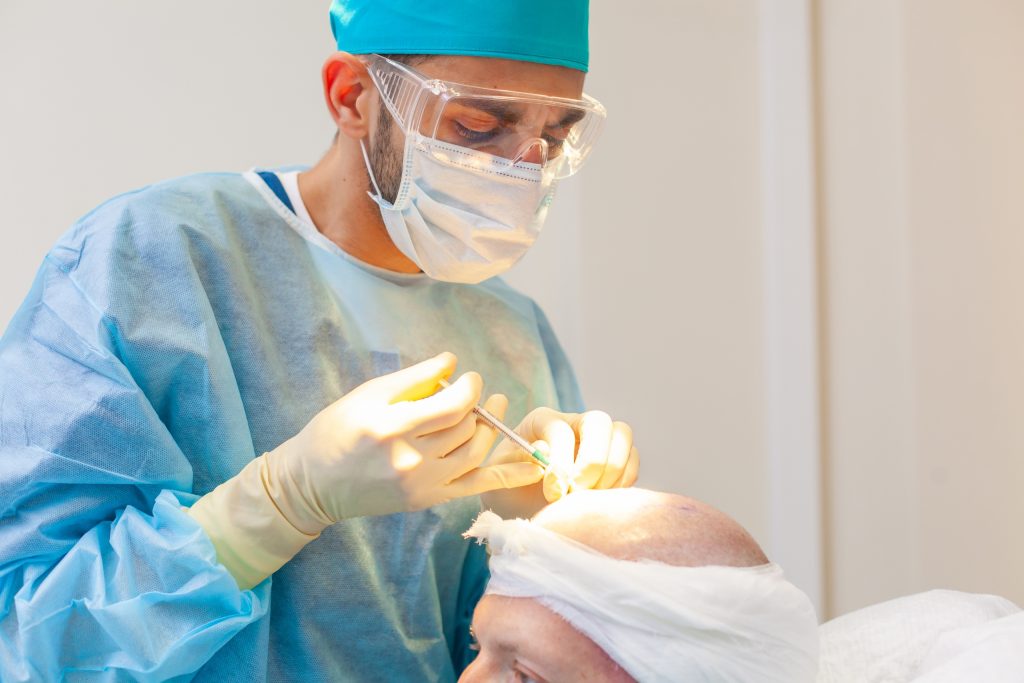People who want to get a hair transplant in Turkey are very interested in and concerned about how much it costs. Patients need to know how these costs are broken down so they can make smart choices and make sure prices are clear. Turkey has become a famous place for hair transplants because it has great medical services and prices are low. However, it is very important for people to fully understand how much the treatment will cost. This covers the cost of the surgery, care before and after the surgery, consults, and any other fees that come up. Patients can compare prices and pick the best choice for their wants and budget if they fully understand how costs are broken down. In the medical field, clear price is important because it helps people make choices and avoid costs they didn’t expect. It is very important to give people clear information about how hair transplant prices in Turkey are broken down. With this information, people can go ahead with the process with confidence, knowing that they are fully aware of the costs and can make plans accordingly.
Consultation and Evaluation Fees
At the first hair transplant meeting, the patient’s suitability must be carefully checked. Expert doctors look at treatment plans and make them fit the patient’s needs. The patient’s medical history, trend of hair loss, and treatment goals are all part of these exams.
Different clinics have different prices, but most of the time, the cost of the assessment is already included in the price of the hair transplant. This makes sure that doctors give a full evaluation and professional advice for free. Patients should ask up front how much the meeting will cost so they know how much the whole thing will cost.
Consultation fees are based on how experienced and thorough the surgeon is in their evaluation. Surgeons spend a lot of time looking at the state of each patient and coming up with a unique way to treat them. So, the specialized care and attention of medical professionals make these costs worth it.
A skilled surgeon must do a full review before hair transplant surgery can happen. There are different fees for consultations at different facilities, but they are generally covered by the cost of treatment. These numbers show how skilled the surgeon is and how he or she customizes treatment plans to help each patient do best.
Surgical Procedure Costs
The cost of surgery depends on a number of factors. These costs include the surgery, the medical staff, and the fees for the operating room.
Costs for surgeons depend on their name and skill. Surgeons with more experience or specialties may charge more. The surgeon’s fee is also affected by how complicated and long the surgery takes.
The cost of nurses and anesthesiologists is another thing to think about. These experts are necessary for surgery to go well, and the cost usually covers them.
The cost might go up because the process needs an operating room. These fees might cover renting a place to stay, tools, and supplies.
The cost is also based on the type of operation, like FUE, FUT, or DHI. Each way has its own costs and wants.
The graft count also changes the cost of the operation. The price goes up because more grafts take more time and money.
These things affect how much a normal surgery costs in Turkey. The surgeon’s fees, which can be several thousand dollars, may include costs for medical staff and the operation room. Turkey is known for hair transplants because the surgery is less expensive there than in other countries.
Graft Extraction and Transplantation Charges
Hair transplantation surgery involves taking out and putting in grafts in order to treat hair loss and bring back natural hair growth. As part of these procedures, hair cells are moved from the donor area, which is usually the back of the head, to the area where hair will grow.
The costs of graft extraction and transplanting vary on a number of factors. Procedure difficulty changes the price. The cost is affected by hair loss and transferring patches. If you are losing a lot of hair, you may need more grafts, which will cost more.
The price also depends on how experienced the medical team is. Skilled doctors charge more because they are better at what they do and have a higher success rate. The medical team’s skill determines how well the treatment works and how it looks.
Extra costs may be incurred for specialized graft care and transplanting methods and tools. It might cost more for more advanced ways like FUE or robotic hair transplants. Some treatments cost more because they need specialized tools and training.
Anesthesia and Medication Expenses
Anesthesia is needed for medical treatments, which costs money. These include the fees for the doctor or CRNA and the cost of the medication. The costs of medicines after surgery may also need to be thought about.
Costs for anesthesia vary on the type and length of time used. It costs more for general anesthesia, which takes away pain and makes younumb. It might be easier to use a regional anesthetic to numb a certain part of the body. Anesthesia costs more when the surgery lasts longer.
Patients can get treatment after surgery either as part of a deal or on their own. Pain drugs, medicines to stop feeling sick, antibiotics, and other needed medications are some examples. Including these drugs in the price may be helpful for patients and save them money.
Before the surgery, patients must talk to their doctor or insurance company about how much the sedative and medicines will cost. In this way, people can get an idea of how much the treatment will cost and look into options for getting financial help or insurance support. This proactive approach could help people deal with worry and get ready for the costs of medical care.
Aftercare and Follow-up Costs
Aftercare and follow-up visits are very important for the success of surgery and for making sure the patient is happy. At these follow-up appointments, doctors can see how the patient is doing and deal with any problems that come up.
Aftercare is very important because it lets doctors see how well the treatments worked. By checking on the patient’s recovery on a regular basis, doctors may change the post-surgery care plan to make sure the patient has a quick recovery. Patients can tell their healthcare team about any pain or soreness that they are still feeling during regular follow-up appointments. This lets the healthcare team treat the pain properly.
Keep in mind that care after surgery usually costs more. Some examples are the prices of medicine, bandages, and follow-up visits. The hair transplant cost Turkey varies depending on the treatment and location, but it is an investment in the patient’s happiness and the best outcome.
Clinics with a good reputation offer full support to help patients get better. Some of them are treating wounds, exercise, and guidance for mental and emotional problems. This full method speeds up the mending process and helps patients deal with their feelings during the tough recovery phase.

Conclusion
Last but not least, patients need to take the initiative to learn how much hair transplant surgery in Turkey costs. Patients can get a better idea of what their costs will be by asking about the price system and getting any questions answered. When choosing a center in Turkey for hair transplants, it is also important to think about both the level of care and the cost. Being able to pay care is important, but skimping on the level of care could lead to bad effects or even health risks. So, people should do a lot of study and pick a center with a good reputation that offers good care at a fair price. Patients can be sure that their hair transplant surgery in Turkey will go well and meet their needs by getting enough information and making an informed choice.

